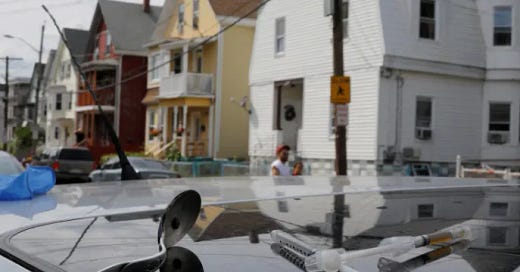Are We Having Less Babies Because We Have Less Hope For The Future?
The "live births per woman" thing is a moral panic these days. What's upstream of it?
First off, I put “fertility crisis” in quotes above because while it’s true that the birth rate (“live births per woman”) is declining, you could also argue that’s a good thing in some ways. We have a lot of people in the world. In America, hell, I mean strip malls feel crowded all the time. Is this a panic? Sure. A moral panic? Maybe not yet. But it do…
Keep reading with a 7-day free trial
Subscribe to What Is Even Happening? to keep reading this post and get 7 days of free access to the full post archives.




